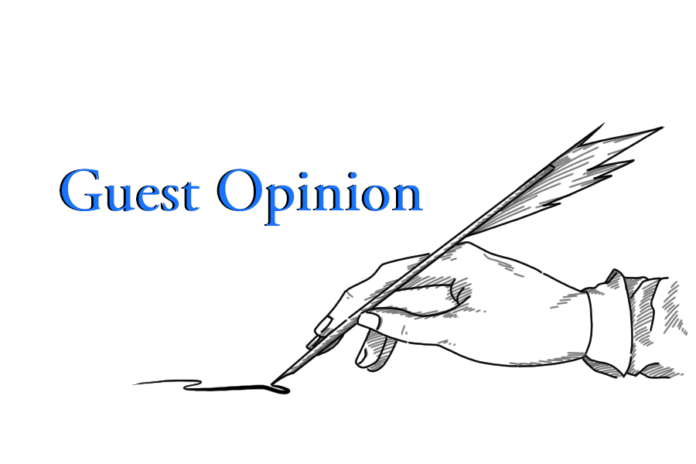UC Davis faculty member Joshua Clover, who was there, recollects the infamous pepper spray attack on UC Davis students in the context of a global freedom struggle
By JOSHUA CLOVER — jclover@ucdavis.edu
The two years before the red-veined and ordinary cop John Pike poured gouts of military-grade pepper spray into the eyes and throats of a couple dozen UC Davis students seated on the quad were hectic in the UCs. Fall quarter 2009 began with multiple union actions and the largest faculty walkout in University history. In the face of massive tuition hikes, student debt and austerity programs, a huge student movement followed — by some accounts, larger than anything in the sixties. Its many actions were oriented by building occupations across the system. At Davis, a Mrak Hall occupation summoned five local forces, riot cops, a K-9 division, news and police choppers. There would be 51 arrests and multiple episodes of violence against protestors that launched an anti-police movement on campus.
When Adbusters magazine issued its fateful call to “occupy Wall Street” in the fall of 2011, they had the UC in mind: “The campus occupation movement is now a global phenomenon: from the recent actions in California to last year’s events in New York and the occupations in the UK….” With the burst of Occupy Wall Street, encampments arose across the continent and beyond. Occupy Davis set up in Central Park. As if completing a circuit started years earlier, Occupy UCD pitched a few tents in the East Quad. People sent them pizza. In some office, Linda Katehi, the chancellor who would shortly earn the name “Chemical Katehi,” reached a decision, presumably with lieutenants and advisors including Provost Ralph Hexter and police chief Annette Spicuzza, to rescue UC Davis from the terrifying specter of politicized camping. On the afternoon of November 18, 2011, cops rousted the encampment, smashed and confiscated the tents, and arrested a few people. The campers were driven west where police reinforcements waited, supported by at least one military-surplus vehicle. I know because, walking around earlier that day, I saw it cached around the corner.
What followed would become front-page famous. Rather than abandon their commitments and scatter, the remaining students made a hurried decision to sit down on the quad. Just…sit. It was around 4:00 on an ordinary valley afternoon. The cops made their usual threats. Blah blah refusing an order, blah blah arrests, blah blah blah. People sit in circles on the quad all the time. In general, as a community, we do not think the sensible response is to torture them. That is what happened. I have seen a lot of people pepper sprayed and tear gassed in my life and this was peculiarly upsetting exactly because it contained a peculiar truth: It was not some dramatic confrontation at the barricades, it was just cops doing cop things, cheerfully executing orders from their boss’s boss.
The basic job of the police is to produce and preserve unequal citizenship, and to make sure that the people who possess the vast majority of the world’s property get to keep it and get to feel comfortable about that — no matter how many suffer and die as a result. The dispossessed must remain dispossessed. That is the entire history of the institution: slave-catchers and enforcers of laws against the poor and the bosses’ gun thugs. That’s just average policing. John Pike is the most average dude in the world. The phalanx of cops he was with: average. Linda and Ralph and Annette: these are extremely average people. Serving up life-threatening violence (this is not an exaggeration; the grade of pepper spray used that day was known to have caused fatalities) is just a thing they might do on an average day.
Less average is for it to happen to a bunch of mostly white university students, and this is part of how it became global news. Later, the administration, in addition to spending hundreds of thousands of student dollars rigging internet results to hide its violence against those very students, would return to its baseline racism. Why had they been compelled to crush the campers, steal their stuff, and attack them with chemical weapons? Purportedly, it was to protect the university community from “non-affiliates” who might steal onto campus under cover of Occupy to menace the innocent and helpless students! This was strange because it was the administration and the cops, and only them, who had menaced the students and done traumatic harm, altering the course of their lives. But it was not strange in its invocation of dangerous invaders sneaking across the border. That’s just average racist signaling, obvious as it is repugnant.
That came later. On the day itself, it was both the extraordinary brutality and the spectacle of white innocence that allowed the news to travel so far so fast. That’s not the fault of the students who got attacked. They were not idealized victims. They were principled adults thoughtfully and courageously doing the right thing, and it was not up to them to do more. But it is up to us, what we do with our own knowledge both of what happened and of why it struck a planetary nerve.
In the intervening years, millions or perhaps billions of us who had been at liberty not to know about the cops have come into the knowledge that police violence against vulnerable communities — Black people, trans people, the houseless and the hungry — is indeed average in the sense of familiar and predictable. This is neither a demand that we only pay attention to certain cases nor a call to rank anyone’s misery. It is just to note that we should all by now be past the “Did you know…?” moment. Summer 2020 at the latest brought that to an end. We all know, now. Some people have had to know for a long time.
Among the significant events that link that day in 2011 to its ten-year commemoration are the murders of Trayvon Martin, Michael Brown, Sandra Bland, Freddie Gray, Stephon Clark, Breonna Taylor, Michael Brown and so many others I have not the space to name. But the most significant events are the occasions when people made it clear that they would not stand for it: the rebellions in Ferguson and Baltimore, among others, and the George Floyd Uprising that happened everywhere, which among other things featured those most subject to ceaseless violence fighting back the most fiercely. This is just in the United States. In Europe they march under the slogan, All the World Hates the Police. There is a vibrant global call for police abolition. It’s quite simple to understand why, to the point where I have to assume that those who pretend not to get it are playing dumb. I am sure they have their reasons.
This Nov. 18 will be an average day. Many people will gather on the quad for events all afternoon leading to a commemoration at 4:00 remembering the local history of horrific police violence, which is to say, the local history of policing. We will do so in solidarity with the students who were tortured that day, but also in solidarity with all of those who have suffered and continue to suffer police violence, those who have survived and those who have not. We hope you will join us. Bring a candle, or a sign, or just your solidarity. Let’s do something extraordinary.
By: Joshua Clover — jclover@ucdavis.edu
Joshua Clover is a UC Davis professor of English and Comparative Literature
Organizers of the Nov. 18 commemoration include Cops Off Campus, Davis Young Democratic Socialists of America, Ethnic and Cultural Affairs Commission, Food Not Bombs, Racial Justice Now, Students for Reproductive Freedom, United Students Against Sweatshops, Yolo Democratic Socialists of America [nb: this list may grow between now and publication]
Disclaimer: The views and opinions expressed by individual columnists belong to the columnists alone and do not necessarily indicate the views and opinions held by The California Aggie.




Provost Hexter was not in the administrative hierarchy over the UC Davis police department at the time and all the information that I have points to him not being involved in the decision. He wasn’t even in town when the decision was made.